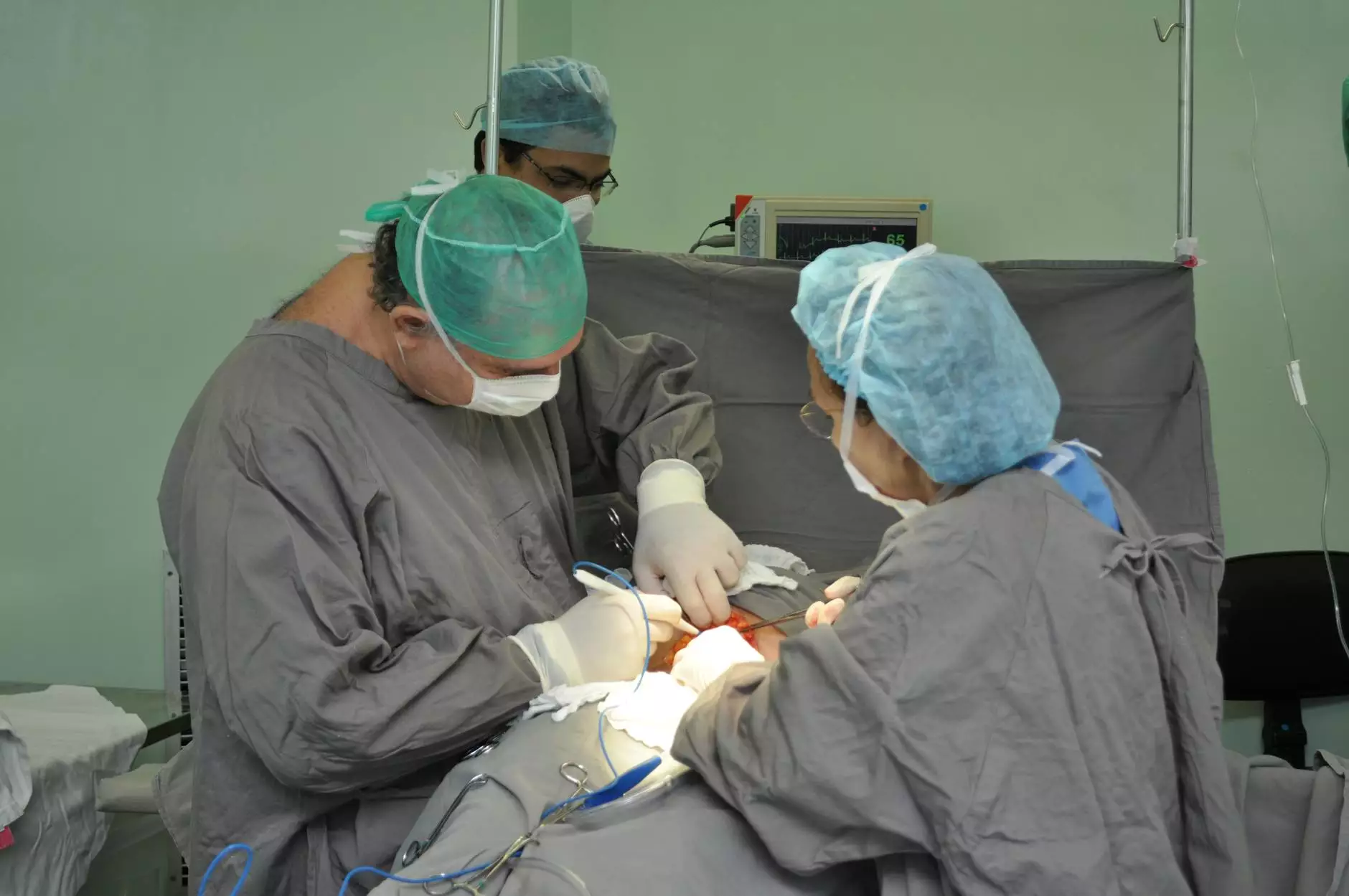The Essential Role of a Thoracic Surgeon

In the realm of healthcare, few specialists are as crucial yet as misunderstood as thoracic surgeons. These highly trained medical professionals focus on the organs within the chest, including the heart, lungs, and other structures, making their expertise vital for an array of medical scenarios. This article delves into the multifaceted role of thoracic surgeons, their training, and how they contribute significantly to the fields of health & medical care, sports medicine, and physical therapy.
What is a Thoracic Surgeon?
A thoracic surgeon is a specialist who focuses on surgical treatment of diseases affecting the thorax, which includes the chest cavity. They perform a variety of operations on the heart, lungs, esophagus, and diaphragm. The expertise of thoracic surgeons is not only limited to performing surgeries but also extends to preoperative assessments, postoperative care, and patient education.
Key Areas of Specialization
Thoracic surgeons may have varying areas of focus, including:
- Cardiac Surgery: Involves operations on the heart such as coronary artery bypass grafting and valve repairs.
- Pulmonary Surgery: Focuses on lung surgeries, including lobectomies and lung cancer resections.
- Esophageal Surgery: Deals with surgeries related to the esophagus, often for conditions such as esophageal cancer or reflux disease.
- Minimal Invasive Surgery: Utilizes advanced techniques for less invasive procedures, resulting in less pain and quicker recovery times.
Training and Qualifications of a Thoracic Surgeon
Becoming a thoracic surgeon is no small feat. It requires a rigorous and extensive educational journey:
- Undergraduate Education: Aspiring doctors typically complete a bachelor's degree in a science-related field.
- Medical School: Following their undergraduate studies, they attend medical school to obtain a Doctor of Medicine (MD) or Doctor of Osteopathic Medicine (DO) degree.
- Residency: After medical school, they undergo several years of residency training in general surgery.
- Fellowship: Finally, they complete additional fellowship training specifically in thoracic surgery.
This comprehensive training ensures that thoracic surgeons are well-equipped to handle complex medical issues, providing essential care to patients.
Importance of Thoracic Surgeons in Health and Medical Care
Thoracic surgeons play a pivotal role in the health and medical landscape, offering critical surgical interventions that can save lives. Their contributions encompass:
Life-Saving Procedures
One of the primary contributions of thoracic surgeons is their ability to perform life-saving procedures. For instance, individuals diagnosed with conditions such as lung cancer or severe cardiac disease rely on these experts for surgical intervention. This can drastically improve survival rates and quality of life.
Collaboration with Other Health Professionals
Thoracic surgeons often work in conjunction with other professionals, including:
- Oncologists: For cancer treatment planning.
- Cardiologists: To assess and manage complex heart conditions.
- Pulmonary Specialists: Collaboration for comprehensive lung treatment.
This collaborative approach ensures that patients receive holistic care, addressing all aspects of their health.
Thoracic Surgeons' Role in Sports Medicine
Sports medicine is an area where the expertise of thoracic surgeons can significantly impact athletes. Injuries in the thoracic area, such as rib fractures or lung contusions, can have serious implications for an athlete's performance and overall health.
Preventative Measures
Thoracic surgeons can also assist in preventative measures, providing athletes with strategies to avoid injuries related to the thoracic region. This includes:
- Education on Body Mechanics: Teaching proper techniques in training to reduce injury risks.
- Pre-Participation Evaluations: Assessing athletes before the season starts to catch potential issues early.
Rehabilitation After Surgery
Post-operative care is another vital aspect. Thoracic surgeons often guide athletes through rehabilitation after surgery, working alongside physical therapists to ensure a safe and effective return to their sport.
The Intersection of Thoracic Surgery and Physical Therapy
Physical therapy is essential in the recovery process following thoracic surgery. A coordinated effort between the surgeon and physical therapist is crucial to:
Enhance Recovery
Patients who undergo thoracic surgery often face significant physical challenges. A structured physical therapy regimen helps enhance recovery and reduces complications. Activities may include:
- Breathing Exercises: To improve lung function post-surgery.
- Strength Training: To regain strength in the chest and upper body.
Monitoring Progress
Thoracic surgeons frequently monitor their patients' progress in collaboration with physical therapists, making necessary adjustments to therapy or surgical intervention as required. This integrated care model maximizes recovery outcomes.
Challenges Faced by Thoracic Surgeons
Despite their critical role, thoracic surgeons face numerous challenges, including:
Technological Advancements
With rapid advancements in medical technology, thoracic surgeons must continually update their skills and knowledge. This includes:
- Robotic Surgery Techniques: Embracing new technologies to enhance surgical precision.
- Staying Informed: Regular participation in continuing education and surgical conferences.
Patient Care and Communication
Caring for patients with serious conditions requires not only technical skill but also exceptional communication and empathy. Thoracic surgeons must effectively:
- Explain Complex Procedures: Ensuring patients understand the risks and benefits of their surgery.
- Provide Emotional Support: Helping patients cope with the emotional aspects of serious diagnoses and surgical recovery.
The Future of Thoracic Surgery
As we look toward the future, the field of thoracic surgery is poised for exciting developments. Some notable trends include:
Minimally Invasive Techniques
Minimally invasive surgeries are becoming increasingly commonplace, leading to shorter recovery times and improved patient outcomes. This evolution reflects the general trend in medicine towards less invasive treatment options.
Patient-Centered Care
The focus on individualized patient care continues to grow, with thoracic surgeons increasingly incorporating patient preferences and values into treatment plans.
Integration with Technology
The integration of artificial intelligence and machine learning in surgical planning and execution promises to enhance precision in thoracic surgeries, leading to better outcomes for patients.
Conclusion
The role of a thoracic surgeon is indispensable to modern healthcare, particularly within the realms of sports medicine and physical therapy. Their extensive training, critical skills, and compassionate patient care contribute to improved health outcomes for many. As the field continues to evolve with technological advancements and patient-centered practices, thoracic surgeons will undoubtedly remain at the forefront of surgical innovation, fostering a healthier future for all.









